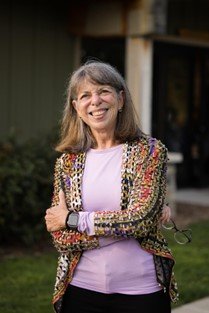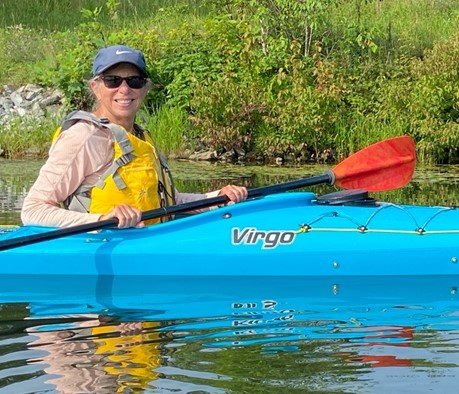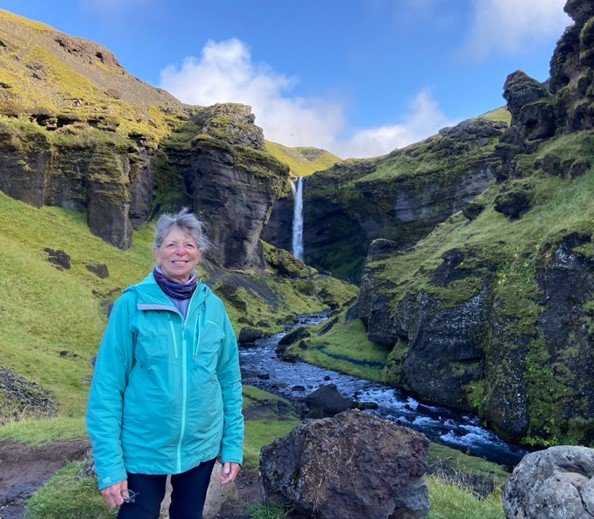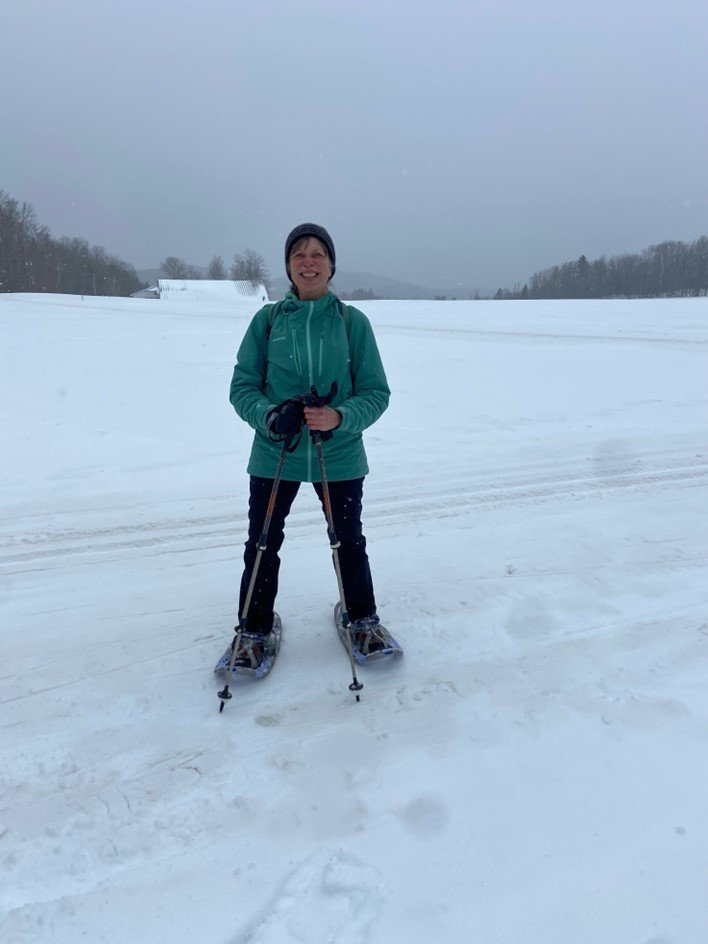“Being his support system gives my retirement purpose.”
Says Phyllis Miller, Court Appointed Special Advocate
for 7.5 years and 5 child assignments.1.) Tell us a little bit about yourself.
I retired from my career in education in 2015. My teaching career included 30 years in elementary grades and administrative positions. I also taught at Kutztown University and worked in the Education Office and the Provost’s Office at Alvernia University after leaving the public education system. After obtaining a Doctorate in Education from Lehigh University, my elementary students thought I was a veterinarian since I would talk to them about my dogs and would bring a dog into the classroom to use in my lessons. It’s amazing how an animal can grab the attention of children!
Since retiring I have adopted an active lifestyle including bicycling, kayaking, and hiking. I enjoy being outdoors and have traveled to Nova Scotia, Alaska, and Iceland. You can see that my Buffalo, NY roots help my comfort level in colder weather!
2.) What made you decide to take the first step to reach out and become a CASA?
After retiring, I wanted to stay involved with children. I have always felt comfortable working with children that have special needs whether emotional, physical, or academic. I saw an article about the CASA organization and registered for the first class of trainees. We graduated in April 2016, and I have been an active volunteer since that date.
3.) Did you find that the CASA classes were enough to get you started with your first case? Did you feel supported?
The CASA training was very thorough! However, one really understands the role and the Children and Youth system when you are knee-deep in a case. The support of the CASA staff is what keeps me advocating for these adolescents. They are not often the easiest children to work with and Christa Yeager, Ashley Frank, and Nancy McCullar have dried a few tears. The rewards are immense when you feel that you have become a consistent and reliable resource for the child.
4.) Were you nervous meeting the child involved in your first case? Does it get easier?
I still get nervous when I have a new case. Every case has its own set of challenges. But, once you establish your role and routine, contact the child and all the accompanying agencies, you can concentrate on what is best for the child. That is what drives you forward.
5.) How long have you been a CASA and how many cases have you had?
I have been a CASA for 7.5 years. Can you look up the number of cases? I honestly don’t know! [Author – Phyllis is working with child #5]
6.) How do you work being a CASA volunteer into your busy life?
This case is unusual in that I am not able to visit with the adolescent at this time. He is in a residential facility in the western part of PA. We Zoom together every two weeks, and he calls several times a week. I have weekly meetings with BCCYS and State level agencies regarding his case because of its complexity. His parents and siblings are not allowed to have contact with him, so I am his link to everyday life. Being his support system gives my retirement purpose. I schedule my other activities around the CASA responsibilities.
7.) With all the different people involved in a child’s case: family, foster family, school, doctor, caseworkers etc. How do you stay organized? Can you share any tips that would help a new CASA volunteer?
I mentioned this case is different from my others in that there are no parents or foster parents involved. However, it is extremely important that I do not drop the ball since I am his advocate and Educational Decision Maker. I use an application called Evernote to take notes and store them on the cloud, so they are accessible wherever I am located.
8.). Is there an experience or has a child, in one of your cases, ever said something or done something to make you feel this is why I became a CASA volunteer?
I do not have my own children and many of my cases involve angry children because of the circumstances they are exposed to. I have had the same adolescent for three years with my present assignment. When he transferred to a facility outside Pittsburgh, he called every night for several months. I would always end the call with the same saying my mom used to use “Sleep tight” and he would respond “Don’t let the bedbugs bite.”
9.) We all know that being a CASA is not all butterflies and roses so what would you say is the hardest thing about being CASA is and what keeps you coming back?
My current case has rejuvenated my desire to make a difference. Not all cases will give you that “I’m making a difference” feeling. But you are! I am lucky that this adolescent is not afraid to show his appreciation for what I am doing.
